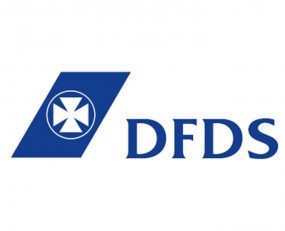
12% higher Q4 EBITDA brought EBITDA for 2017 to DKK 2,702m, an increase of 4%. The increase in operating profit was based, among other things, on the continuing positive development in volumes on the company’s ten freight routes across the North Sea.
Q4 revenue increased by 4.4% to DKK 3,497 and EBITDA for the quarter increased 12% to DKK 574m.
“Overall, North Sea freight volumes grew by 7% in 2017. In spite of the Brexit issue, and the delayed Brexit agreement between the UK and EU, we see that the UK’s economy is still growing, albeit at a slower pace. According to the UK government’s official prognosis, growth is expected to continue at just over 1% in 2018. At the moment, we even see an increasing growth in British exports, which also contributes positively to our developments on our ten North Sea routes,” says Niels Smedegaard, CEO & President, DFDS.
The positive development in North Sea volumes is also underpinned by some shortage in drivers as trips to UK are not as attractive as they used to be due to the fall of the pound in the wake of the Brexit vote. This has resulted in some freight forwarders changing from using trucks with drivers to just sending unaccompanied trailers on DFDS’ freight-only ships.
The Group’s revenue is expected to increase around 2% in 2018, excluding acquisitions. The outlook range for EBITDA before special items is DKK 2,650-2,850m (2017: DKK 2,702m). Investments are expected to amount to around DKK 1.1bn. DFDS is stepping up investment in its digital capabilities and increasingly assessing future opportunities offered by new business models and technologies.
To accommodate the expected volume growth over the coming years, DFDS has ordered four new mega ships with a capacity of 475 trailers each for the North Sea traffic. The ships will be delivered from 2019 and onwards from the Jinling Shipyard in China.
“In spite of the challenges Brexit may lead to over the coming years, we can also see opportunities for providing our customers with new, valuable, customs clearance services after Brexit, should customs clearance become necessary. We are located in the ports and have experience with this from our UK to Norway service,” says Niels Smedegaard.
Source: DFDS